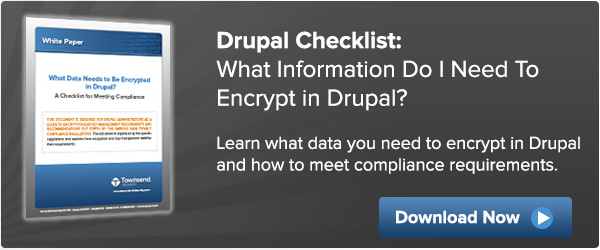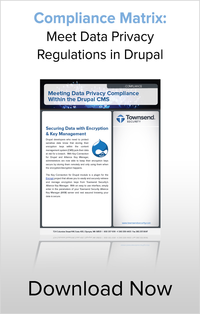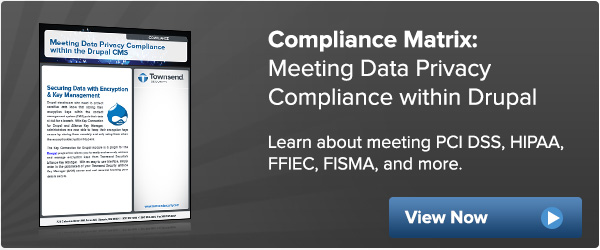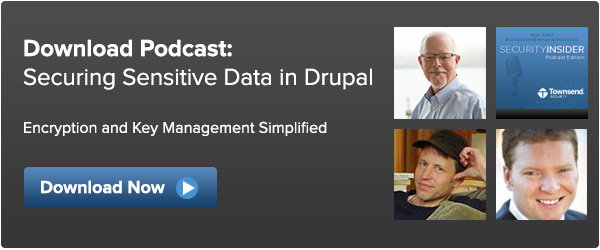"I am collecting data in Drupal. What data do I need to encrypt?"
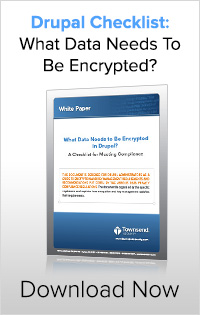 Organizations starting an encryption project always have this question on their minds. It is a simple question, but can be hard to answer. Generally speaking, you should encrypt any information that alone, or when combined with other information, can identify a unique, individual person. This is called Personally Identifying Information, or PII. This should be your starting point, but you may need to address other information depending on the compliance regulations you must meet.
Organizations starting an encryption project always have this question on their minds. It is a simple question, but can be hard to answer. Generally speaking, you should encrypt any information that alone, or when combined with other information, can identify a unique, individual person. This is called Personally Identifying Information, or PII. This should be your starting point, but you may need to address other information depending on the compliance regulations you must meet.
Federal/State Laws and Personally Identifiable Information (PII)
Federal and State laws vary in terms of what they consider Personally Identifiable Information (PII), but there is a lot of commonality between them. PII is any information which either alone or when combined with other information, which can identify an individual person. Examples include email addresses, first name, last name and birth date.
[Download white paper for complete list]
Educational Information Covered by FERPA
Educational institutions who fall under the FERPA regulation must protect PII as well as information like student names, student ID numbers, and family member names.
[Download white paper for complete list]
Federal Agencies and FISMA
Federal Agencies must evaluate their systems for the presence of sensitive data and provide mechanisms to insure the confidentiality, integrity, and availability of the information. Sensitive information is broadly defined, and includes PII, as well as other information classified as sensitive by the Federal agency. Sensitive information might be defined in the following categories: medical, financial, proprietary, contractor sensitive, or security management.[Download white paper for complete list]
Medical Information for Covered Entities and HIPAA/HITECH
The HIPAA/HITECH Act defines Protected Health Information (PHI) to include PII in addition to the following PHI: Patient diagnostic information, payment information, health plan beneficiary numbers, full facial photographs, etc.
[Download white paper for complete list]
Payment Card Data Security Standard (PCI DSS)
The Payment Card Industry Data Security Standards (PCI DSS) require that merchants protect sensitive cardholder information from loss and use good security practices to detect and protect against security breaches. If you accept or process credit card or other payment cards, you must encrypt the Primary Account Number (PAN).
Financial Data for FFIEC
Banks, credit unions, and other financial institutions must protect Non-public Personal Information (NPI) which includes personally identifying financial information. In addition, you should protect income, credit score, etc.
[Download white paper for complete list]
Encrypting Data in Drupal
Townsend Security is helping the Drupal community encrypt sensitive data and properly manage encryption keys. Developers who need to protect sensitive data know that storing their encryption keys within the content management system (CMS) puts their data at risk for a breach. With Key Connection for Drupal and Alliance Key Manager, administrators are now able to keep their encryption keys secure by storing them remotely and only accessing them when the encryption/decryption happens.
The Key Connection for Drupal module is a plugin for the Encrypt project that allows you to easily encrypt sensitive data with NIST-validated AES encryption and securely retrieve and manage encryption keys from Townsend Security’s FIPS 140-2 compliant Alliance Key Manager. With an easy to use interface and certifications to meet compliance requirements, you can rest assured knowing your data is secure.

